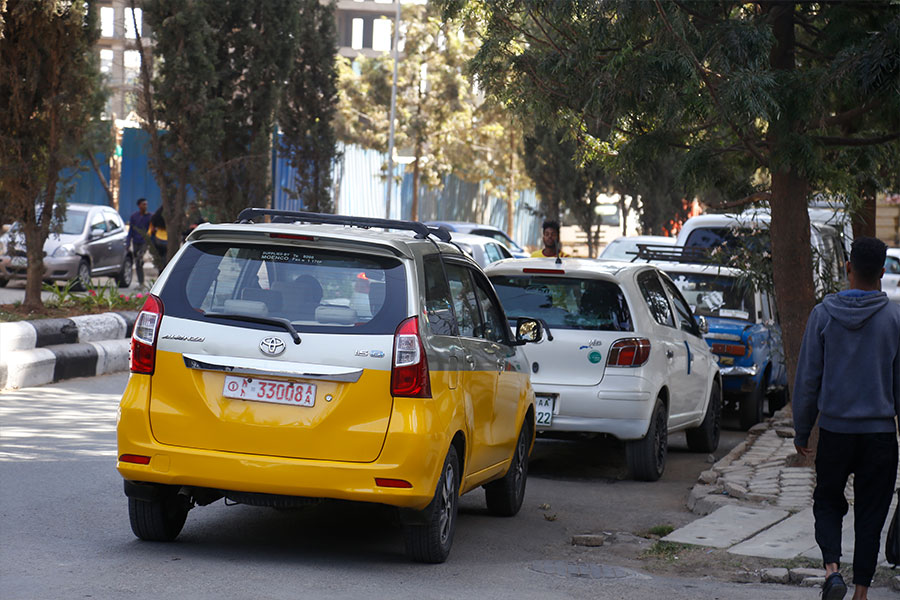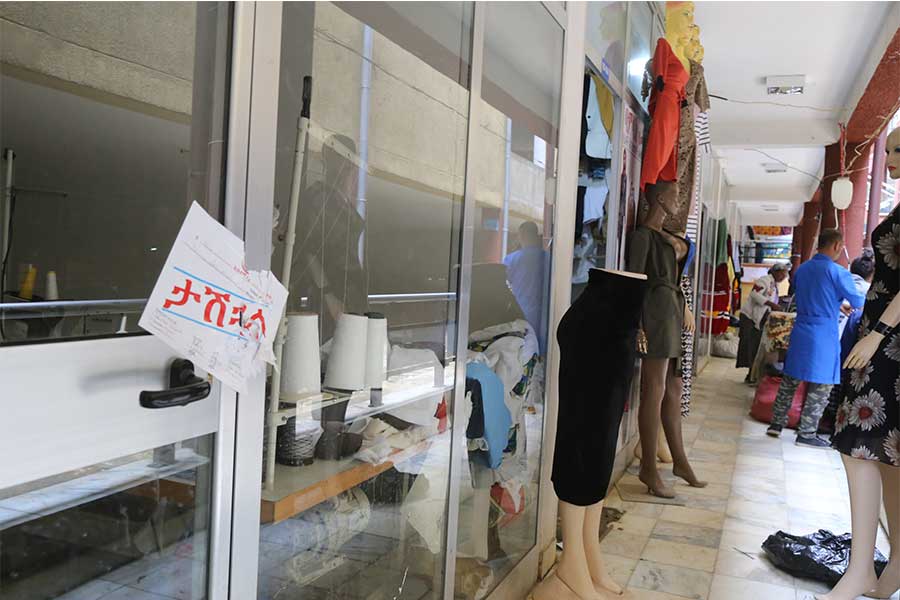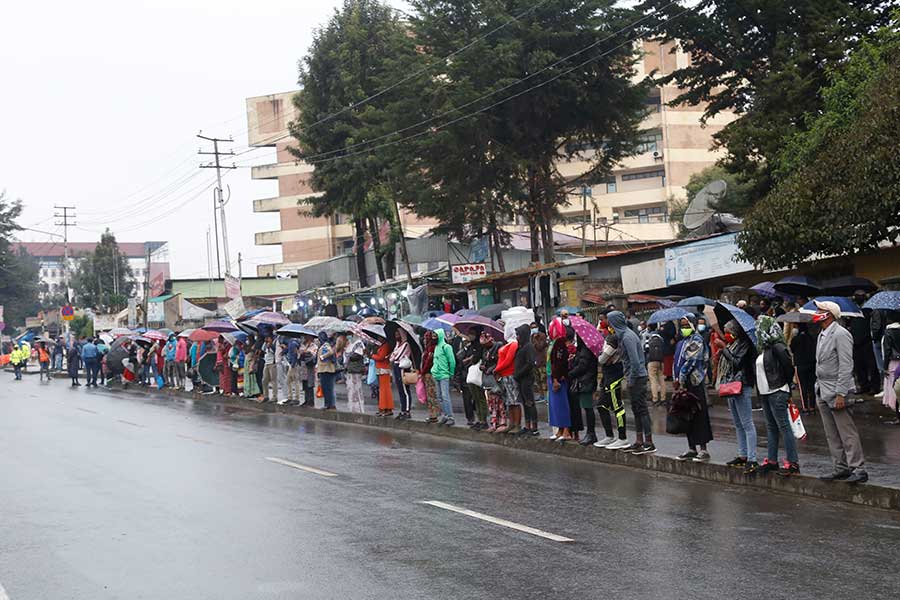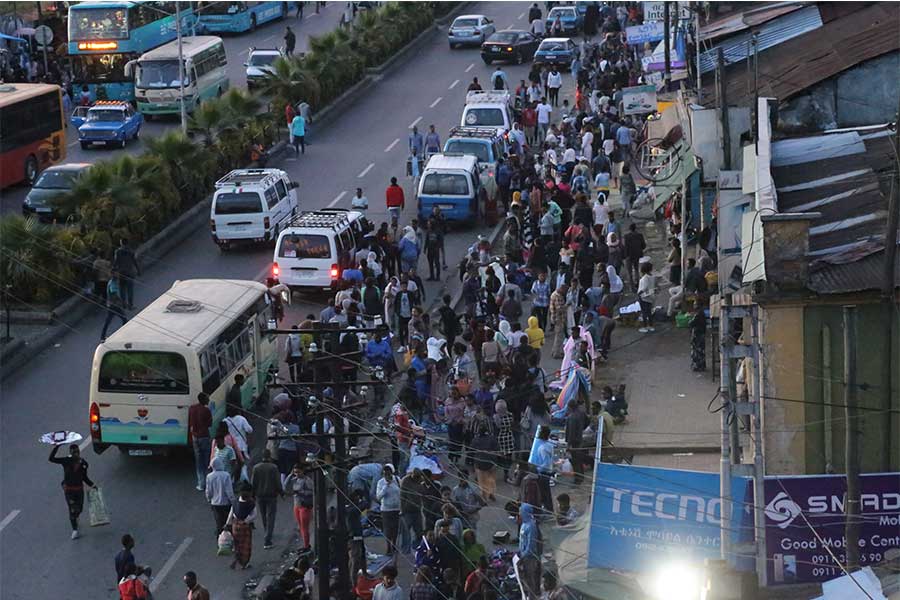
Radar | Mar 11,2023
With a loan from the World Bank, the Addis Abeba City Administration is set to build dining halls and kitchens in 151 schools across nine districts in the capital.
The Food Security & Productive Safety Net Agency is calling on companies for the construction of dining halls and kitchens, which are expected to be completed in four months once the winners of the bid are announced two weeks after its closing dates of August 17 and 18, 2020.
The construction project will be financed through a loan agreement made between the City Administration and the World Bank. The 800 million Br was re-purposed through initial funding for the Urban Productive Safety Net Programme.
The Programme, as part of the social infrastructure activities, is financing the kitchen and dining hall project in an effort to meet open and hygienic standards of cooking and eating, according to a World Bank spokesperson.
The construction will be undertaken through a combined effort of the City's Construction Bureau, Education Bureau and the School Feeding Agency, which is overseeing and facilitating the entire programme. The Construction Bureau is tasked with the surveys and adaptation of the construction, while the Education Bureau will handle the selection of schools with kitchen spaces and dining halls.
The project is expected to eventually be implemented throughout all 290 primary government schools in the city.
The future plan is to incorporate the remaining 198 secondary government schools in the city, according to Anchinesh Tesfaye, head of the School Feeding Agency.
"The World Bank is financing the construction to a certain extent and the City Administration will cover the costs of the remaining schools," she said. "The funds for the construction of the remaining schools will be processed once the bidding process has been finalised."
The School Feeding Programme, an initiative of Deputy Mayor Takele Uma, has benefited 381,000 registered students since its launch at the beginning of the current school year until the closure of schools due to the Novel Coronavirus (COVID-19). There are a total of 600,000 registered students in government schools in the city and including them all in the Programme is an important part of its future goals.
"The construction of the dining halls and kitchens was deemed essential based on the study conducted by the School Feeding Agency during the time that it was being implemented," said Meti Tamrat, a member of the board leading the Agency.
The School Feeding Programme itself, while being partially financed through the World Bank for the construction of the halls and kitchen space, will be entirely funded by the City Administration, which allocated 1.2 billion Br for the coming school year.
The programme employs mothers of students and provides funds for a uniform food menu for the students. About 7,000 mothers are involved in the Programme from different schools and have undergone training.
"It is part of the plan to increase the quality of education," said Meti. "Food is a right, and we want to implement this programme in a well-organised way with special attention to the psychological well-being of students."
The Urban Productive Safety Net Project is financed in part by the World Bank with 300 million dollars, while the government provides the other half. The support from the World Bank is provided through grants and a loan in equal parts. The Project, implemented at the federal level by the Urban Job Creation & Food Security Agency under the Ministry of Urban Development & Construction, is targeted at low-income households.
It has 488,000 beneficiaries across 11 cities in the country in collaboration with the Ministry of Labor & Social Affairs and city administrations.
School meals are extremely important and highly recommended for a country like Ethiopia, according to Messay Mulugeta (PhD), a food security expert at Addis Abeba University.
There are an estimated 18.7 million people living in cities across Ethiopia, a number increasing by 5.1pc every year. From this population, over 25pc are living below the poverty line, according to the Ministry of Urban Development & Housing.
"Students are encouraged to go to school," he said. "They can get access to better and more nutritious food. They get the energy to attend school and study."
School feeding in and of itself, however, cannot be a long-term solution, according to the expert who advises that working on enabling households to have a better income should go hand in hand with such programmes.
"In the bigger picture, spending millions on education, ICT and infrastructure will bring about sustained and longer-lasting development," he said.
The country should steer away from donors and look to our community as a sustainable way to continue this programme, recommended the expert.
"It may seem a lot when an individual takes it upon themselves, but associations of different communities can get together and pledge to support a certain school," he said.
The expert cited the Bill & Melinda Gates and Jack Ma foundations as what the private sector and big businesses can do to bring about social change in their communities.
PUBLISHED ON
Jul 18,2020 [ VOL
21 , NO
1055]

Radar | Mar 11,2023

Fortune News | Jul 02,2022

Obituary | Sep 10,2021

Featured | Sep 28,2019

Featured | Sep 06,2020

Viewpoints | Nov 04,2023

Fortune News | Jun 04,2022

Fortune News | May 31,2025

Fortune News | Oct 30,2022

Agenda | Oct 19,2019

Dec 22 , 2024 . By TIZITA SHEWAFERAW
Charged with transforming colossal state-owned enterprises into modern and competitiv...

Aug 18 , 2024 . By AKSAH ITALO
Although predictable Yonas Zerihun's job in the ride-hailing service is not immune to...

Jul 28 , 2024 . By TIZITA SHEWAFERAW
Unhabitual, perhaps too many, Samuel Gebreyohannes, 38, used to occasionally enjoy a couple of beers at breakfast. However, he recently swit...

Jul 13 , 2024 . By AKSAH ITALO
Investors who rely on tractors, trucks, and field vehicles for commuting, transporting commodities, and f...

Jul 5 , 2025
Six years ago, Ethiopia was the darling of international liberal commentators. A year...

Jun 28 , 2025
Meseret Damtie, the assertive auditor general, has never been shy about naming names...

Jun 21 , 2025
A well-worn adage says, “Budget is not destiny, but it is direction.” Examining t...

Jun 14 , 2025
Yet again, the Horn of Africa is bracing for trouble. A region already frayed by wars...